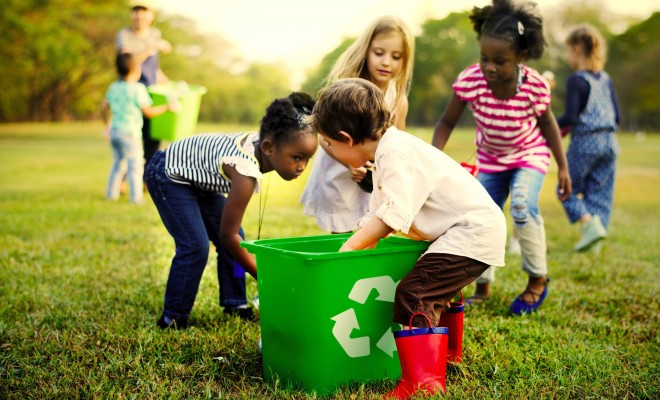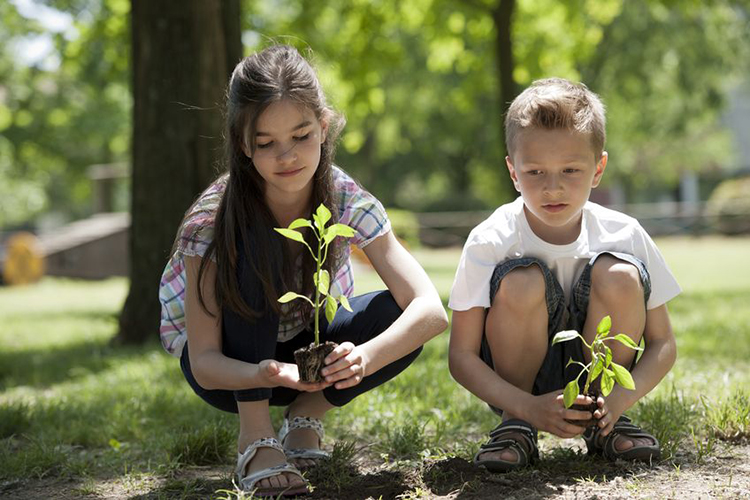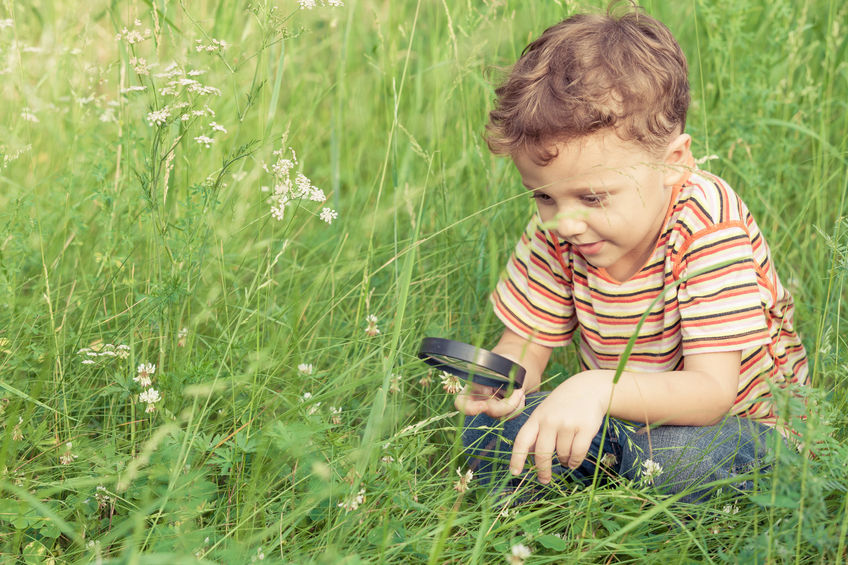
Childcare Activities
10 Environmental Activities for Early Years
10 Environmental Activities for Early Years
- Recycling
- Gardening
- Homemade Resources
- Reusing Materials
- Worm Farm
- Science Experiments
- Bug Hotel
- Sponsor a Tree or Animal
- Visit a Nature Reserve
- Read Books
In Part 1 of this 2 Part series we’ve already looked at how to foster environmental awareness in preschool settings, why it’s important and some of the key issues involved. In this article, we’re going to explore some ideas for practical activities that can help young children start to understand concepts of sustainability and become more eco-conscious.
1. Recycling
Get the children involved in recycling as much as possible, by having a clear system of easily accessible boxes with labels/pictures on them, and making sure that everyone understands what goes where. This includes food waste after meals/snacks. Talk about why recycling is important, what can be recycled, and what happens once it’s been collected (you could find some examples of products made from recycled materials).
2. Gardening
Getting the children involved in gardening is a brilliant way to explore all kinds of environmental concepts. We’ve already looked in some detail at ideas for gardening activities, but just to follow on from the recycling activity, how about growing some plants from food scraps (eg carrot/celery tops, or fruit seeds)?

3. Homemade Resources
There are plenty of ideas online for resources that can easily be made with preschool children, for example, soap, paper or playdough. This helps to reduce packaging and demonstrates that not everything has to be bought readymade from shops.
4. Reusing Materials
Raid the recycling bins for materials that can be reused and made into something else. Small cardboard boxes, tubes, plastic bottles and so on can be repurposed and used for all manner of projects, such as making musical instruments, craft projects, handy receptacles for storage, or just good old fashioned junk modelling.
5. Worm Farm
Build a worm farm (or source one that’s premade), and let the children have some fun creating their own natural fertiliser for the garden. Worm farming teaches children about recycling, sustainability and animal behaviour, as well as caring for animals.
6. Science Experiments
There are lots of different scientific exploration activities that you can carry out with preschool children (particularly the older ones) to help develop their awareness of various environmental concepts. You could investigate solar energy, for example, by building a solar oven (using a cardboard box, black paper and tin foil) to melt marshmallows. Or you could find out how to get clean water, by experimenting with filtering dirty water though various different materials (eg sand, gravel).
7. Bug Hotel
Make a home for insects in a quiet, shady corner of your nursery garden, and then get the children to help monitor its inhabitants. You can make a bug hotel from things like wooden pallets, pipes, slates and all kinds of other repurposed materials, as well as natural resources such as bamboo canes, pine cones, twigs and bark. Making crevices of different shapes and sizes will provide shelter to a range of invertebrates, such as spiders, bees, ladybirds, beetles, centipedes and woodlice.
8. Sponsor a Tree or Animal
Plant a tree in your nursery’s name, or sponsor an endangered animal. This can lead to all kinds of enrichment activities linked to finding out more about the tree or animal, including art and literacy. You might even be able to visit your adopted tree or animal if the adoption scheme is at a local nature reserve or zoo.
9. Visit a Nature Reserve
If you’re lucky enough to have a nature reserve or environmental education centre close by, then arrange a visit with the children. They may be able to take part in some exciting learning activities such as minibeast hunts, planting or pond dipping.

10. Read Books
There are plenty of early years picture books available on this subject, such as ‘The Great Paper Caper’ by Oliver Jeffers, ‘Superfrog and the Big Stink’ by Michael Foreman, and ‘Topsy and Tim Go Green’ by Jean and Gareth Adamson. As always, read in small groups and try to make the sessions as interactive as possible, by asking the children questions and discussing the issues that are highlighted in the stories.
Sign Up to Receive this 20-Part Activity Email Series
We hope you have enjoyed exploring some of these environmental activities. If you’re looking for more fun and creative activities then why not try some of our other articles:
-
-
- Nature Activities for Kids: Ideas for Exploring the Outdoors
- EYFS Sand Play Ideas and Activities
- EYFS Water Play Ideas and Activities
- 12 Indoor Activities for Kids
- 10 Easy Paper Crafts for Kids
- Music Activities for Toddlers
- 10 Outdoor Craft Ideas for Nursery Children
- Activities to Encourage Children to Share
-




You must be logged in to post a comment Login